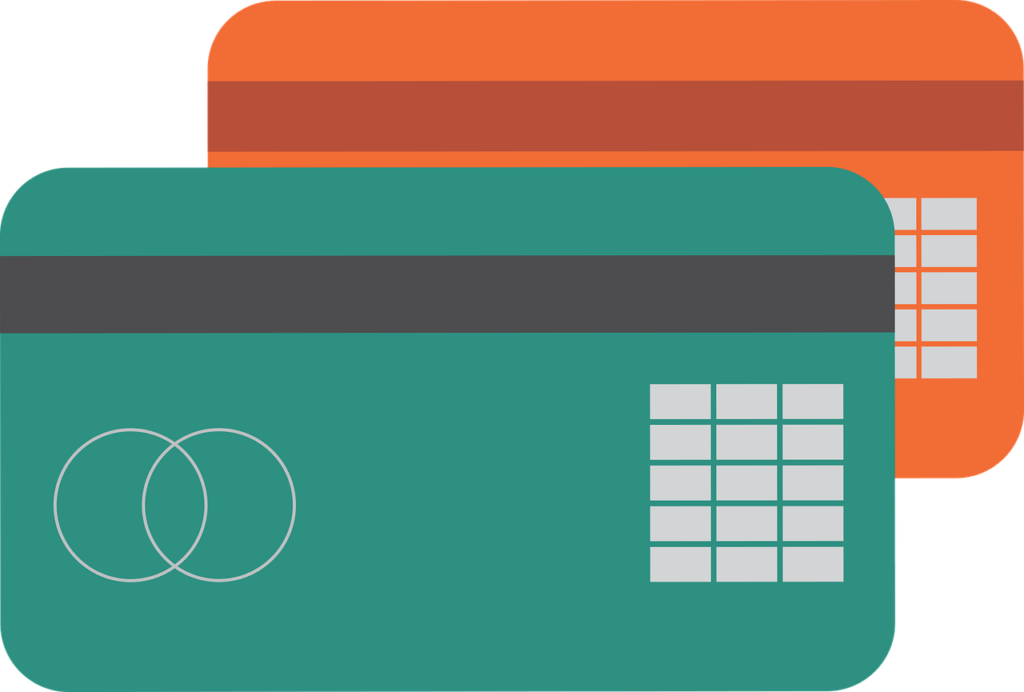2020 has been a truly volatile year for most people and while we are cautiously optimistic that 2021 will be better, this year has shown that nothing should be taken for granted. With this in mind, we would like to help you start 2021 right by showing you methods that can help you live within your means.
Living within your means implies that your monthly spending is equivalent to or less than your monthly earnings. For some, it is a difficult practice to follow. This is because financial boosters like credit cards and loans make it easy to spend well above your income level.
This way of life is unsustainable, and sooner or later, your overspending will begin to negatively affect your credit score. The lower your credit score gets, the less likely it is that financial institutions will extend credit to you. Even if you somehow manage to get credit, your interest payments will be higher than what it would otherwise be with a higher credit score. This cycle repeats until one day you find yourself being forced to make drastic financial changes that will impact your lifestyle.
The solution? Start taking charge of your financial situation right now before it’s too late.
Note: This guide is written primarily for those who want to start making sense of their financial well-being but don’t know how. People who are already familiar with budgeting may not find our advice to be as useful.
Review Your Current Financial Status

Let’s start with a snapshot of your current financial situation.
First, list down all your income sources and the corresponding amount on one side on a piece of paper or, preferably, a spreadsheet on your PC. This is the credit side.
Secondly, list down all your sources of expense and amount on the opposite side. This is the debit side. Remember to categorize accordingly e.g. fuel, food, rent, credit card interest, etc.
Tally up the numbers on both columns and write down the total for each column.
Add the total from the credit and debit side together to come up with a final figure. This is your surplus or deficit for the month (this number is not your net worth).
Next, convert all the numbers (income and expenses) into percentage (%) form. For example, if you spent $200 this month on fuel and your total expense for this month is $2,000, then fuel made up 10% of your total expenses.
Find the first three categories that constitute the majority of your expenses. Slowly scrutinize each item one-by-one, asking yourself if there is anyway to reduce them without negatively impacting your current lifestyle. Keep doing this until you fully exhaust the list.
Do the same with the income side, but this time ask yourself how you can increase them.
Once this is done, follow the six tips below for developing better financial intelligence.
1. Track Your Expenses
Budgeting, or a spending plan, is the ideal approach to help guide you to live within your means. A spending plan lets you allocate how much you intend to spend versus how much you actually spent. Start by simply jotting down your cash inflow and outflow (including purchases made on credit) on a daily or weekly basis.
Do not be alarmed if you overspend on a certain day as long as you do not exceed your monthly budget. This means it is fine to overspend on one category if you are willing to compensate by underspending on another.
However, if you consistently overspend on one category after a few consecutive months, do a review of your budget and see if you didn’t underestimate your allocation for that category. Your budget may need to be updated to more accurately reflect your actual situation.
We recommend that you record your inflows and outflows on a daily basis but we know that this may not be possible for some. Those who find this schedule unreasonable can do it on a weekly basis instead. What is important is that you make recording your financial inflow and outflow into a habit.
2. Have an Emergency Fund
You can never predict what the future will bring. Your car may breakdown, you could become ill, or you could find yourself in dire financial situations. An emergency fund is essentially cash put aside to address unexpected financial demands.
Try setting aside 10% of your monthly income for your emergency fund. This fund should be invested in safe, liquid assets that can be easily converted into cash. Your emergency fund should also be able to cover your expenses for a minimum of three to six months, more if you desire.
The best way to go about this is to set up an automatic deduction from your salary on a monthly basis. This set-it-and-forget-it approach is not only more convenient but also increases the likelihood that you will have funds available during times of crisis.
If there is anything that 2020 has taught us, it is that we can be easily blindsided by something that most people never saw coming.
3. Be Thrifty
Being thrifty can not only help you save extra money but also alter your spending habits.
You can start with something as simple as planning your grocery shopping. Grocery planning and having a shopping list which you firmly adhere could help you save a lot. Evidently, you are only buying what you need instead of splurging on snacks.
Be creative when it comes to being thrifty. Buying clothes at the thrift store is not only cheaper but you might also find other objects that are worth purchasing. These can include things like furniture, books, and even cutleries. Some stores are also affiliated with different non-profit organizations meaning that your purchase will directly benefit charity.
Keep in mind too that many retailers offer a variety of discounts that most people don’t bother searching for prior to making a purchase. Try and find coupon codes whenever possible. Here are two tools that you can utilize for finding discount codes while shopping online: 1) Honey 2) Rakuten.
4. Cut Down on Unnecessary Spending
As you track your buys, ask yourself, “Do I truly need this?”.
Questioning each transaction can help you separate your wants from your needs.
Strategically reducing your expenses can really make a big difference to your bank account. By spending less of what you make, you open up the possibility of escaping debts, take care of credits, and set something aside for those big purchases. Habits like buying household items in bulk or cutting down on pricey coffees can save you money that will add up over time.
The more you practice these habits, the easier they will become. The wonderful feeling of having cash to spare at the end of each month is something that you should strive to achieve.
5. Utilize Your Credit Cards Wisely

The common wisdom suggests getting rid of credit cards completely as part of one’s financial clean-up. While there are many benefits in following this advice, we argue that it applies only to those who are unable to keep their credit purchases in check.
This is because banks make a big portion of their income by charging seemingly small interest rates. Here is an example of a credit card purchase with 12 monthly installments at 24% APR (annual percentage rate).
Item price: $100.00
Installment duration: 12 months (let’s assume that you want to get rid of the installment in 12 months’ time).
Minimum monthly payment: $10.00
Total item cost: $100 (base price) + $12.70 (interest charges over 12 months) = $112.70.
Note: numbers are derived from the calculator found here.
We can see in the above example that taking out an installment for 12 months ends up in the buyer paying 12.70% more compared to a cash purchase.
So what should you do? If you are unable to make full payments for all credit card purchases by the end of each month, then getting rid of your cards could be a smart move. If you are the opposite, then we see no harm in keeping a few credit cards (2 to 3 at most) on hand.
This is because credit cards tend to come with various benefits such as discounts, air miles rewards, and cashback. Credit cards also do not have to cost you any money as many financial institutions are willing to waive the yearly fees if you contact them.
Start Developing Your Financial Discipline Today
Money management is an important life skill that should have been part of every school’s curriculum but unfortunately isn’t. This is why it is so important that you are financially well-versed.
Don’t be afraid to ask asking your family, friends, and local communities for help. You can also try searching locally for trusted financial advisors for valuable advice, sometimes for free.
There is no shame whatsoever in living a frugal lifestyle. What matters is that you are the master of your financial situation and not the other way around.




